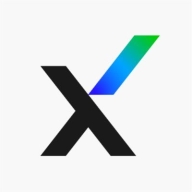

Trellix Endpoint Security and Fortinet FortiClient are two prominent endpoint security solutions. Trellix Endpoint Security has an edge in ease of deployment and customer support, while Fortinet FortiClient is preferred for its superior features and better ROI.
Features: Trellix Endpoint Security offers strong threat detection, comprehensive reporting, and robust endpoint management. Fortinet FortiClient stands out with advanced threat protection, seamless integration with Fortinet’s ecosystem, and robust VPN functionalities.
Room for Improvement: Users of Trellix Endpoint Security mention occasional system slowdowns and a steep learning curve, as well as the need for enhanced usability. Fortinet FortiClient users mention challenges with complex configurations, occasional compatibility issues, and a need to simplify configurations.
Ease of Deployment and Customer Service: Trellix Endpoint Security is praised for its straightforward deployment and excellent customer support. Fortinet FortiClient, although praised for its features, requires more involvement during deployment.
Pricing and ROI: Trellix Endpoint Security provides a balanced cost structure with favorable ROI, making it accessible for a wide range of businesses. Fortinet FortiClient, despite higher initial costs, is seen as delivering high ROI due to its extensive features and robust protection capabilities.
We have observed tremendous return on investment after implementing Trellix Endpoint Security as it is a more cost-effective solution compared to other products.
Clients appreciate the solution’s customization capabilities and ongoing product improvements.
They initiate the troubleshooting process quickly and resolve issues in a timely manner.
They have room to improve by deploying more support resources.
The main issue revolves around addressing bugs in the endpoint.
I would rate their customer service nine out of ten.
The response time is a notable issue.
Some engineers are knowledgeable.
The scalability could use improvement as you need to ensure that routes and policies are aligned, which can be complex.
I hope Fortinet will start an insider developer program where professionals can provide feedback on new releases to ensure improvements.
We can recommend FortiClient for small organizations with 50 to 60 users as well as for larger enterprises due to its extensive features.
Trellix Endpoint Security is scalable.
I would rate the scalability of the solution as a six out of ten, indicating some challenges due to downtime requirements.
Its stability level is excellent.
I would rate the stability of Trellix Endpoint Security as near perfect, close to ten out of ten.
I would rate its stability as nine out of ten.
FortiClient needs improvement in restricting user information and ensuring more secure customer data to better protect source code and reduce the risk of security breaches.
The routing and policy need to be tailored between both to ensure proper functionality.
There are advanced features like Zero Trust that I currently do not use but could be beneficial for security.
What needs improvement in Trellix Endpoint Security is the reduction of resource consumption by the scanning feature.
It would also help if detection specifics were identified more quickly and the problem-solving process accelerated, especially to meet larger clients' expectations.
The product does not seem to be cloud-native.
FortiClient is a value-for-money product and is not considered expensive compared to similar products on the market.
Recently, Fortinet has increased prices for its products.
Justifying the price to clients can be difficult.
Trellix Endpoint Security is cost-effective and provides excellent value for money.
The license costs are very reasonable, around 1,000 to 1,200 rupees per year.
The most valuable feature of FortiClient is its high security level.
We appreciate its VPN capabilities and the features that offer extra security functionalities like antivirus and malware scanning.
It enhances our business by allowing our agents to work remotely, which we had not been able to do before.
Trellix Endpoint Security is a proven, robust, and cost-effective solution that protects the organization from different types of ransomware and attacks.
Including options like Application Control (formerly Solidcore), integrated monitoring, change control, DLP, and advanced threat protection, the solution offers comprehensive security.
The product does not seem to be cloud-native and there are issues with automating it.


FortiClient is a fabric agent that delivers endpoint protection, endpoint compliance, and secure access in a single, lightweight, lightweight client, providing visibility, information, and control to your endpoints. In addition, it enables secure, remote connectivity to the security fabric. It also integrates network and endpoint with segmentation and automation. FortiClient enables unified endpoint awareness by sharing endpoint telemetry with the security fabric. It is compatible with third-party EDR (endpoint detection and response and anti-malware solutions.
The FortiClient fabric agent can:
• Report on the status of a device, including firmware version and applications running.
• Send all suspicious files to a fabric sandbox.
• Enforce USB control, application control, URL filtering, and firmware upgrade policies.
• Provide application firewall service and malware protection.
• Enable devices to connect securely to the security fabric over either ZTNA tunnels or VPN (IPsec or SSL), both encrypted. The connection to the security fabric can be either a SASE service or a FortiGate next-generation firewall.
You can purchase FortiClient with one of three levels of capability:
Zero Trust security - The ZTNA edition enables both VPN and ZTNA encrypted tunnels, as well as USB device control and URL filtering.
Endpoint security - The EPP/APT edition adds AI-based NGAV (next-generation antivirus), application firewall, endpoint quarantine, and support for cloud sandbox.
Cloud-based endpoint security
Benefits and Features
• Fabric agent leverages integrations and provides telemetry information to the rest of the Fortinet security fabric.
• SAAS control and web/content filtering
• Dynamic access control helps with automation and simplifies compliance.
• Software inventory management enables visibility as well as management of licenses.
• Automated response detects and isolates any endpoints that may be compromised.
• ZTNA delivers better remote access and consistent application access policies
• Managed endpoint security services remotely assist with setup, configuration, deployment, vulnerability monitoring, and overall monitoring of endpoint security.
Reviews from Real Users:
PeerSpot users like that FortiClient is easy to use and integrates well with other solutions. They also appreciate the richness of its features and find it to be inexpensive in comparison to other products that require separate purchases for separate features.
Trellix Endpoint Security provides aggressive robust protection for every endpoint in an enterprise organization. Trellix uses dynamic threat intelligence and mounts a superb defense across the complete threat lifecycle. This solution will keep your organization more secure and resistant to any possible threat of risks. Trellix offers an amalgamated suite of next-generation endpoint security tools. These tools give users the benefit of machine learning, intuitive intelligence, and greater assistance to ensure their networks are being protected non-stop against threats - potential or realized - and can stop attacks before they happen. Trellix uses MDR (managed detection and response) and XDR (extended detection and response) to give users a comprehensive endpoint security solution.
Trellix Endpoint Security Benefits
Trellix Endpoint Security Top Features
Reviews from Real Users
“It has a great console. We can manage everything from the central console and it is very easy. Every year we are getting the benefits of legacy also. It's easy to set up.” - S Fazlul H., IT Lead Engineer, Information Technology at Banglalink
“There is a new feature where you can set thresholds for all the CPU consumption allowing for no consumption on the servers when the scans happen. It is a separate plugin or addon, and if we have it on all the virtual machines it automatically checks the resources, and based on that, it will schedule the scans. That is something that I have not seen in other antivirus solutions, such as Symantec.” - Sabari K. Senior Engineer at a comms service provider
We monitor all Endpoint Protection Platform (EPP) reviews to prevent fraudulent reviews and keep review quality high. We do not post reviews by company employees or direct competitors. We validate each review for authenticity via cross-reference with LinkedIn, and personal follow-up with the reviewer when necessary.